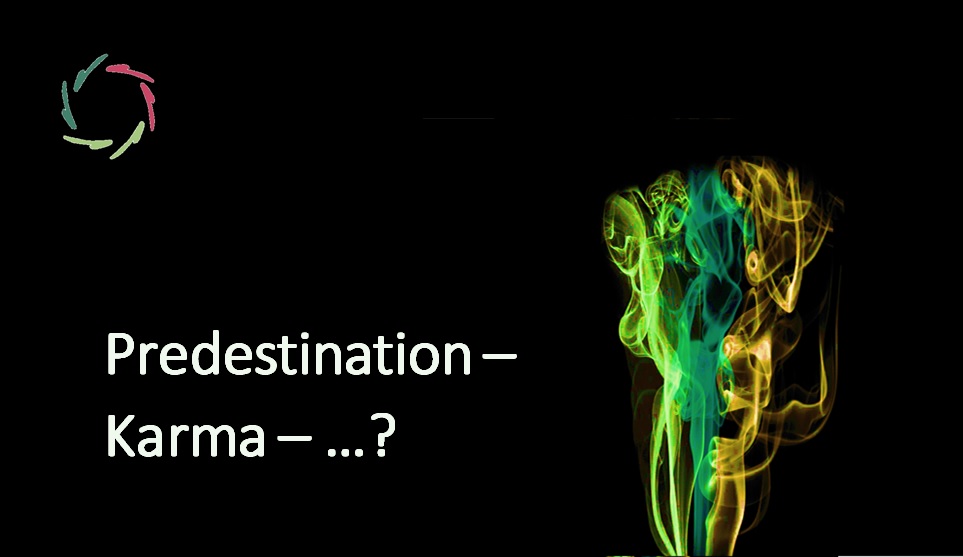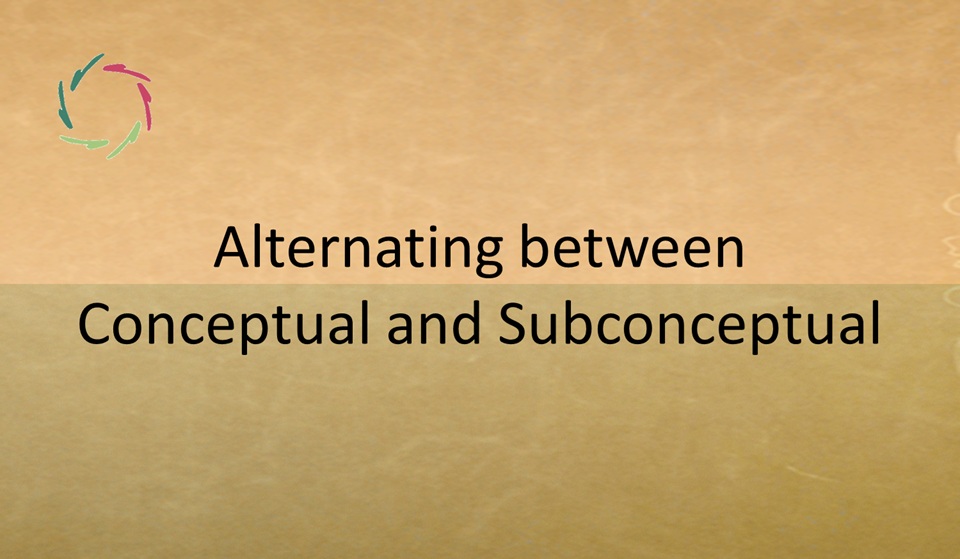Predestination – Karma – …?

Different cultures, different takes on basically the same.
Small glossary
- Predestination: Christian (mainly Protestant) belief that God has predestined the salvation of some and not others, or even all that will happen.
- Karma: Hindu belief that all of one’s actions together in this and previous lives predestine one’s future fate.
Non-conscious processing
From an AURELIS standpoint, the common factor of much that is not easily graspable within different cultures is the result of non-conscious, subconceptual processing. I say this without meaning disrespect for anything profound.
It’s easy to see what happens or happened. The primary orientation of what any organic brain (animal, human) tries to understand is outward-bound, whether outside or within one’s body. However, what comes from deep inside the mind but isn’t understood as such may also give an outward impression.
Time and time again, people see outward what lies most deeply inward and try to grapple with the situation through an outward inwardness, leading to an akward paradox.
By the way, this doesn’t say where ‘inward’ ends. We’re talking about directions. That’s all we can scientifically do.
As-by-itself
Something may appear to happen by itself or through some magical touch. For instance, a wizard wields his want et voilà. (Un)fortunately, wizards don’t exist. Nothing happens by itself. The second law of thermodynamics remains uncontested.
As-by-itself is ‘almost,’ thereby fundamentally different from by-itself. Whereas by-itself is outwardly magical, as-by-itself is, in the sense used here, the result of non-conscious processing.
Predestination, karma
Two examples of this are predestination and karma. In both, the human free will is superseded by things happening by themselves, this is: without you being able to change the course of events. It’s already in the books somewhere. All you can do is wait and abide.
You can (and should) still do the good thing, but it will not change the future. What will happen is determined by your karma or predestination.
Subconceptual
The AURELIS take is, as you may already know, that nothing can purely conceptually be done to change the future in such situations.
Your subconceptual mental processing makes it happen. Consciously, it seems to come from nowhere; therefore, from outside of usual nature, something meta-physical, divine, or magical.
Nothing of the latter is conceptually needed to explain the course of events.
Meditation exercises
Three short (+/- 3′) meditations may provide an excellent entry to ‘as by itself,’ meditatively. [see: “Three Short Meditations“] You might take a look at them after finishing this text. Profoundly doing and repeating these exercises can self-teach you in action what cannot fully be grasped otherwise. In other words, the doing is necessary for understanding.
From different cultures, these exercises may be specifically framed according to culture ― no problem at all, as long as the intention is genuine. As always, nothing profoundly meaningful should be abandoned. On the contrary, profundity should be sought right within the cultural particularities. If anything gets ‘abandoned,’ it should be through the backdoor, respectfully, with the purpose of creating room for something even more crucially meaningful.
Metaphorically
Metaphors (predestination, karma, …) can generally be kept in full glory. In my view, they form the main richness of the human way of being. With due respect, they are never ‘mere metaphors.’ [see: “Importance of Symbolic Reality“]
However, in-depth, all metaphors – especially religious ones – touch each other.
That’s magical enough.


